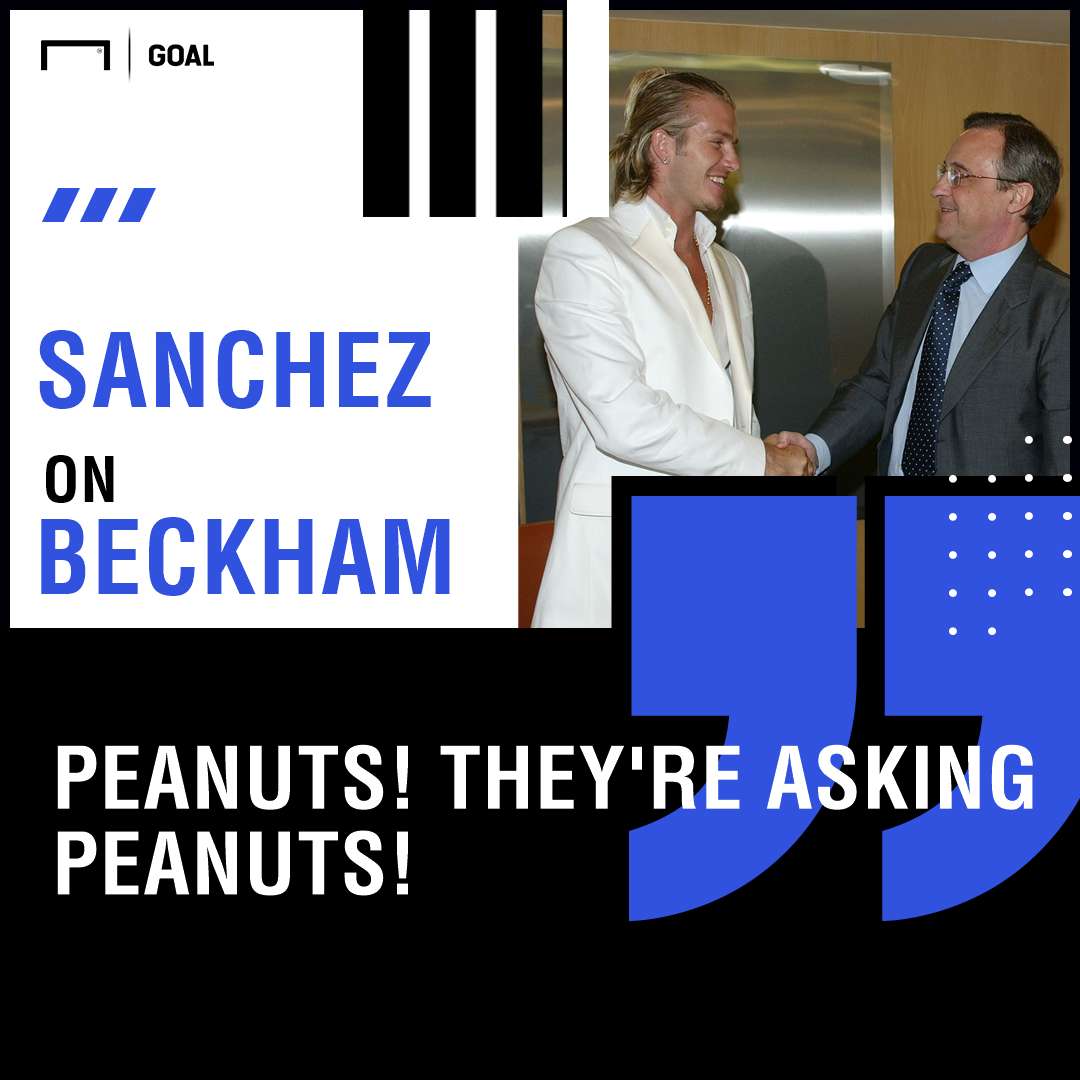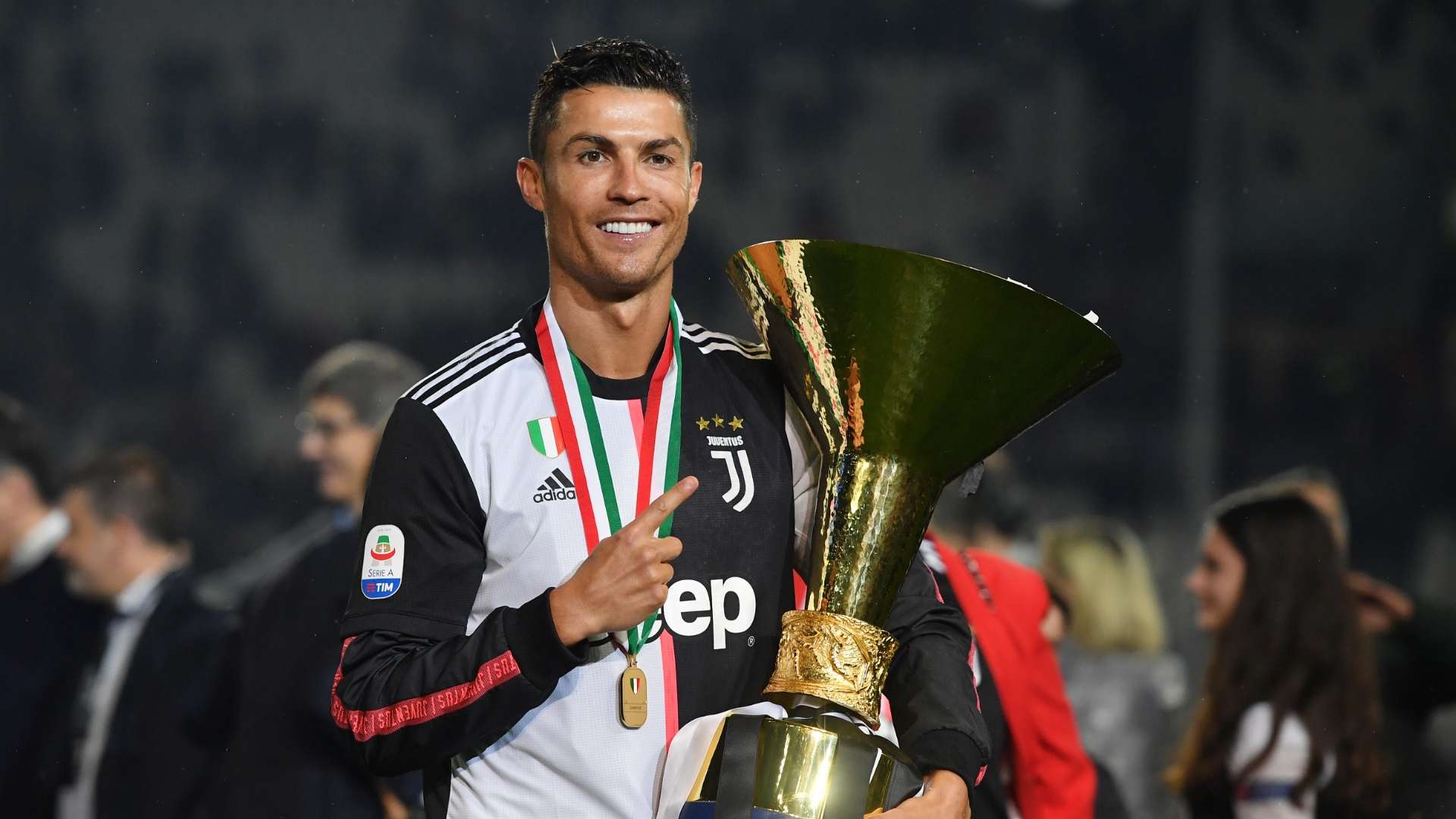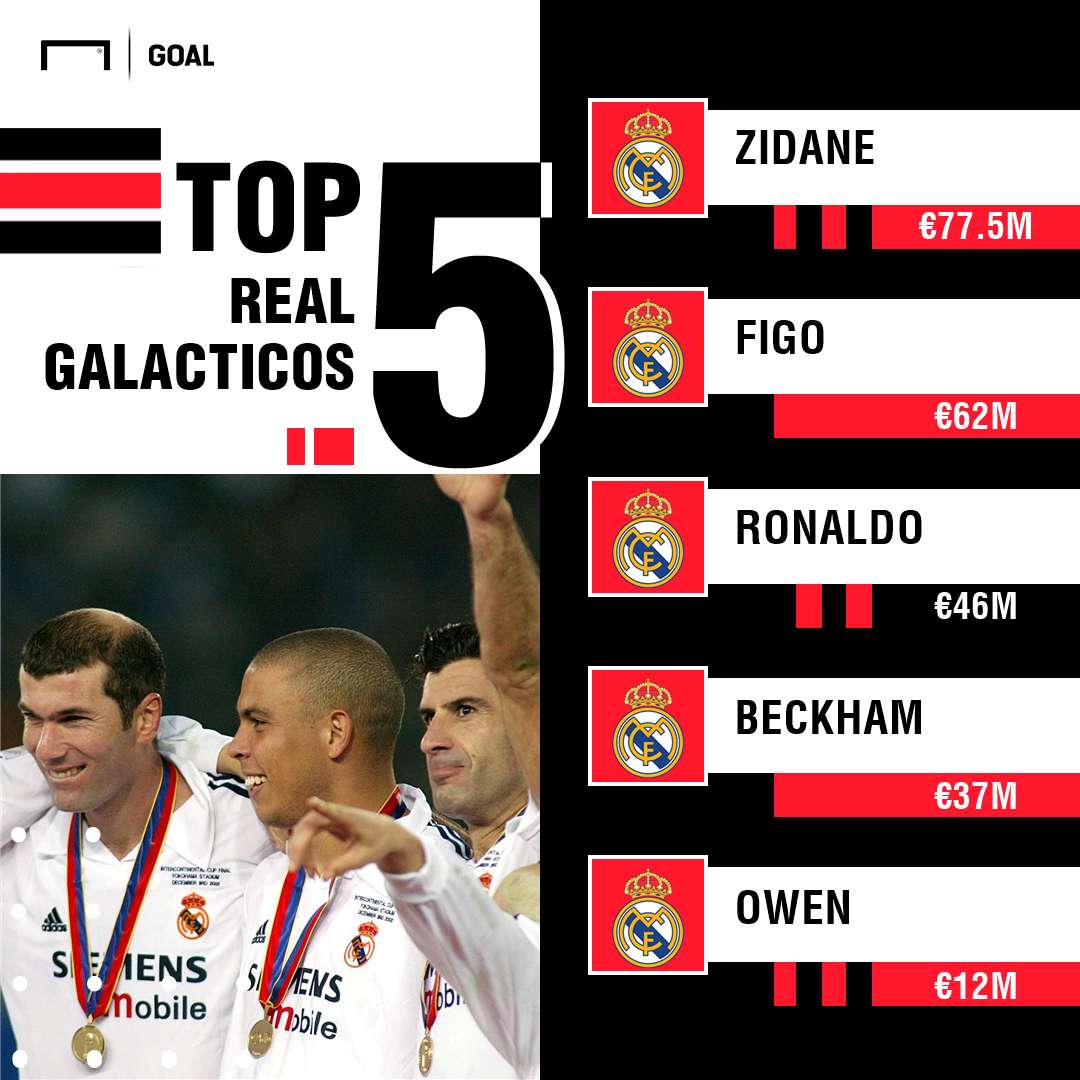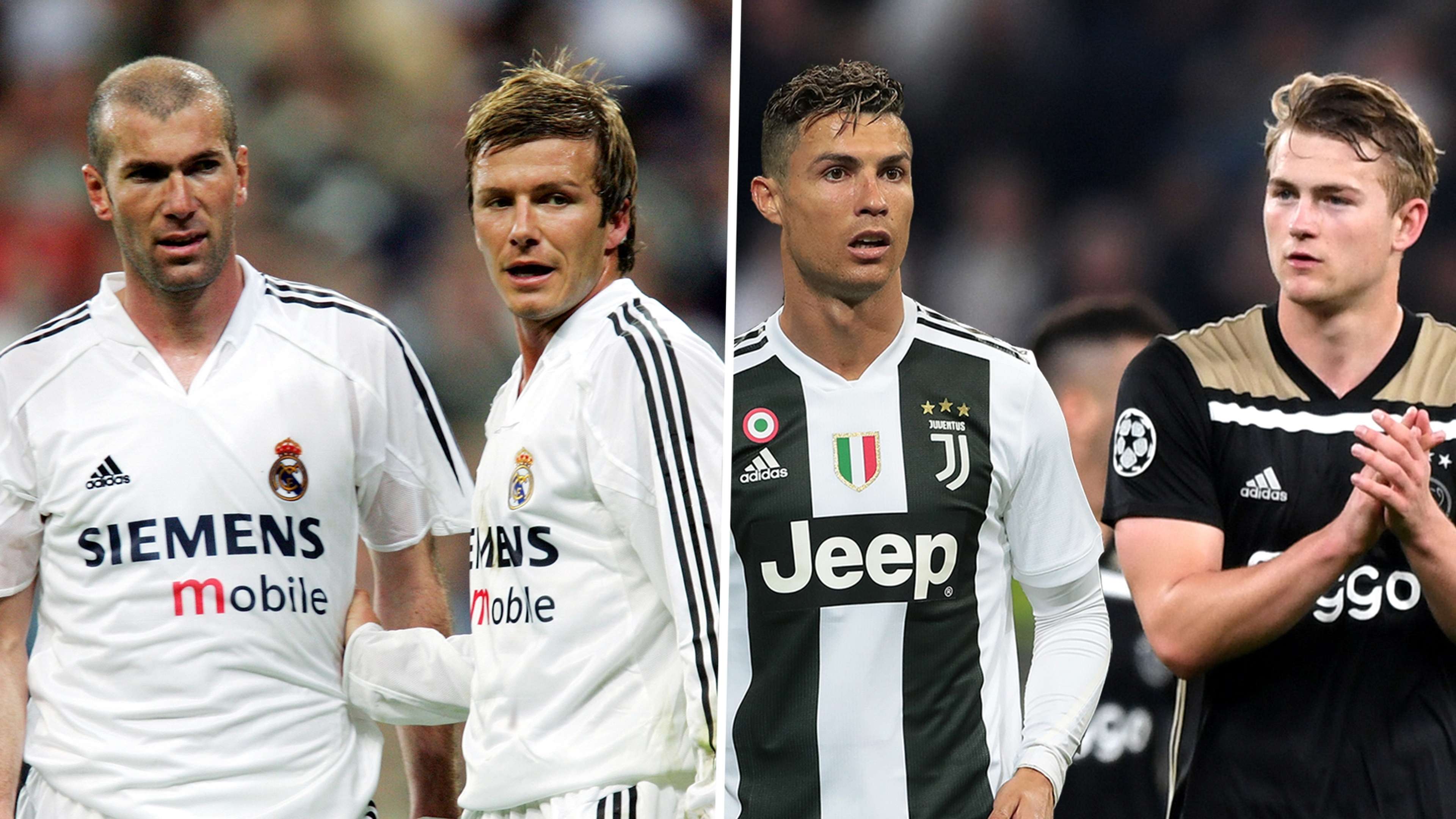It was the summer of 2003, Real Madrid marketing director Jose Angel Sanchez was sat in a Sardinian restaurant opposite Peter Kenyon and he couldn't believe what he was hearing.
The Manchester United chief executive was willing to sell David Beckham to the Blancos for an initial €37 million (£24.5m/$42m).
Sanchez was giddy with excitement but his expression never changed. He politely excused himself from the table and went to make a phone call to Florentino Perez.
According to John Carlin's book, White Angels, when the Madrid president answered, Sanchez screamed down the line: "Peanuts! They're asking peanuts!"
He was astounded by United's valuation – not of Beckham the player, but of Beckham the brand.
The England captain was one of the most famous faces on the planet. Sanchez believed that Beckham would be worth at least €500m (£451m/$561m) to Madrid in commercial revenue.
Promising to sign Luis Figo from Barcelona in 2000 had effectively won Perez the presidency, while the addition of Zinedine Zidane the following summer enabled Real to conquer Europe.
What Perez and Sanchez truly desired, though, was to take over the commercial world; Beckham was the missing piece in the puzzle.
"You keep to certain basic principles and if you have a good brand – and Real Madrid is the best brand in sport – you'll do well," Sanchez once explained.
Madrid certainly did well, initially. They won two Liga titles and a European Cup in the first two years of Perez's first term.
Furthermore, a year after Beckham's arrival, Madrid had displaced Manchester United as the most profitable club on the planet; €37m really was peanuts in the circumstances.
 Getty/Goal
Getty/Goal
Juventus president Andrea Agnelli had Real’s famed 'Galactico' era in mind when it came to signing Cristiano Ronaldo last summer.
The Old Lady's renaissance since the turn of the decade had owed much to the shrewd work done by Beppe Marotta in the transfer market.
The likes of Andrea Pirlo, Paul Pogba, Sami Khedira, Fernando Llorente and Dani Alves had all been picked up on 'frees', while Arturo Vidal (€12.5m), Carlos Tevez (€9m), Patrice Evra (€1.5m) and Andrea Barzagli (€300,000) were signed on the cheap.
The €90m (£81m/$101m) signing of Gonzalo Higuain in 2016 was entirely out of keeping with their recruitment strategy but Juve felt that the Argentine was the proven prolific goalscorer they needed to conquer Europe after reasserting themselves as the dominant side in Italy.
Juve fell just short, though, losing the 2017 Champions League final to Ronaldo's Real Madrid.
Consequently, despite Juve's excitement at Ronaldo's willingness to move to Turin in 2018, there was some hesitancy over paying approximately €340m (£307m/$382m) (€100m transfer fee and €240m in wages) for a 33-year-old striker.
Ronaldo just wasn't a footballer, though; he was an even bigger brand than Beckham.
"It was the first time that the commercial side and the sporting side of Juventus came together in assessing the costs and benefits [of a signing],” Agnelli admitted to the Financial Times last year.
"The opportunity of Ronaldo was thoroughly assessed... and it made sense, both on and off the pitch."
The 'Ronaldo effect' has been of enormous benefit to Juventus in terms of their commercial appeal, having significantly boosted their brand awareness on social media.
 Getty
Getty
It is unlikely that any player other than Lionel Messi could have had the same effect on a club's popularity but the success of the transfer has convinced Agnelli of the benefits of signing one Galactico every year.
Indeed, it is why Juve have decided to splash the cash again this summer. Age was once more a concern. This time around, though, it wasn't about the target being too old but too young.
Barcelona baulked at Mino Raiola's wage demands for the 19-year-old Matthijs de Ligt.
They had offered the defender the exact same salary that his former team-mate, Frenkie de Jong, had accepted to move to Camp Nou: €9m (£8m/$10m) a season.
De Ligt and Raiola, though, wanted more - €12m (£10.8m/$13.7m) per annum, to be precise - and Juve agreed to give it to them, which is primarily why the Netherlands international has arrived in Turin.
Ronaldo's presence and powers of persuasion were also important, though. And that is another reason why Agnelli deemed the Portuguese worthy of such a colossal investment.
Who wouldn't be tempted by the opportunity to play alongside the five-time Ballon d'Or winner?
His mere presence in Turin is a glowing recommendation of Juve as a club, the most powerful demonstration possible of the Old Lady's desire to do whatever it takes to win - and win big.
Beating off competition from Barcelona and Paris Saint-Germain to sign De Ligt is merely further evidence of that ambition.
As the Gazzetta dello Sport pointed out earlier this week, Agnelli is constructing a "Stellar Juventus", one built in the image of Perez's Galacticos.
 Getty/Goal
Getty/Goal
It is worth remembering, though, that while Madrid shone brightly for two seasons, they had effectively burned out by the time Beckham arrived.
He lifted just one major trophy during his four-year stay and that Liga title came right at the end, by which time Perez had already resigned, conceding that the project had been a failure.
The Real supremo had completely neglected the defensive side of the game, most memorably by underestimating the importance of midfield workhorse Claude Makelele.
"He wasn't a header of the ball and he rarely passed the ball more than three metres," he sniped in September 2003. "Younger players will arrive who will cause Makelele to be forgotten."
The decision to discard the Frenchman to Chelsea, though, is remembered as the catalyst for the collapse of the first Galactico era in Madrid.
Juve are, obviously, intent on avoiding such negligence, which is hardly surprising for a club whose success – on and off the field – has been built on solid foundations.
While they are still hoping to strengthen their attack with Mauro Icardi and Federico Chiesa before the close of the transfer window and the midfield has already been bolstered with two typically smart free transfers in Aaron Ramsey and Adrien Rabiot, the €75m (£68m/$84m) signing of De Ligt is evidence of the Old Lady's decision to rejuvenate its once great backline.
As Agnelli explained last year, Ronaldo's very best days may be behind him but his signing would help Juve sign the stars of the future.
“We have to be in a position to be able to clinch the next Cristiano,” he says. “But at the age of 25.”
Essentially, Juve are trying to achieve a perfect balance between young and old, attack and defence, sporting and commercial success.
It is the only way of ensuring that Agnelli's Galacticos last longer than Perez's.




